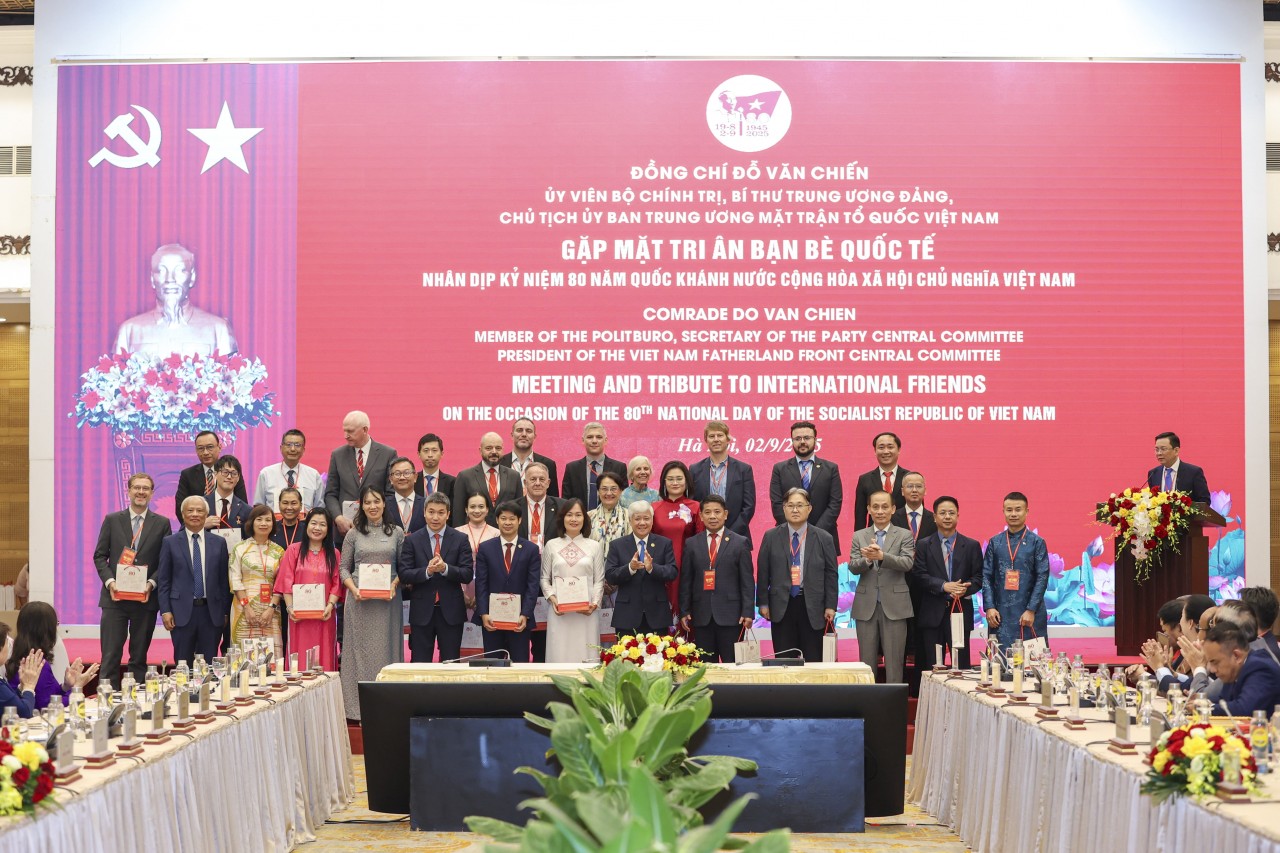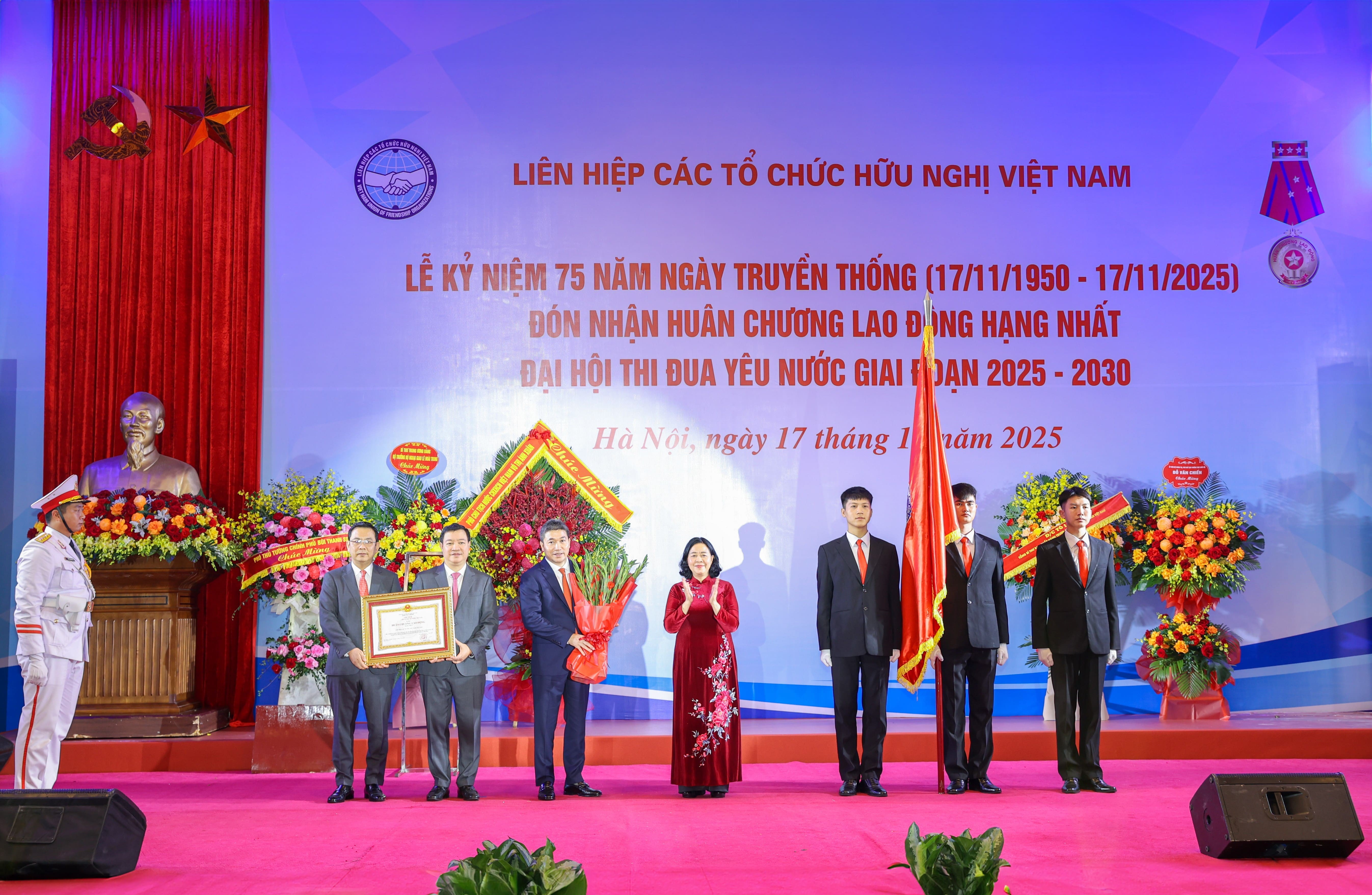A Decade of Research Enhancing Food Safety: ILRI’s Contribution in Viet Nam
| EMWF working to improve food safety in Da Nang | |
| VUFO: Partnering with Plan International for Children’s Well-being |
Supported by the People’s Aid Co-ordinating Committee (PACCOM), a unit under VUFO that facilitates its operations, ILRI has collaborated with Vietnamese partners for more than a decade, turning research findings into policies and impacts at the grassroots level.
Food safety - A concern for every household
Food safety (FS) receives particularly strong attention in Viet Nam. Traditional markets supply up to 80% of meat and vegetables for the population, playing a crucial role in ensuring nutrition and livelihoods for millions of small-scale vendors nationwide. However, food sold in these markets may pose safety risks if FS regulations are not strictly followed. Foodborne diseases affect the health of millions each year, cause economic losses, and reduce consumer trust.
ILRI’s research shows that the contamination rate of Salmonella - a bacterium that causes food poisoning - ranges from 40% to 60% in pork carcass and pork samples collected from pig slaughterhouses and pork stalls in traditional markets.
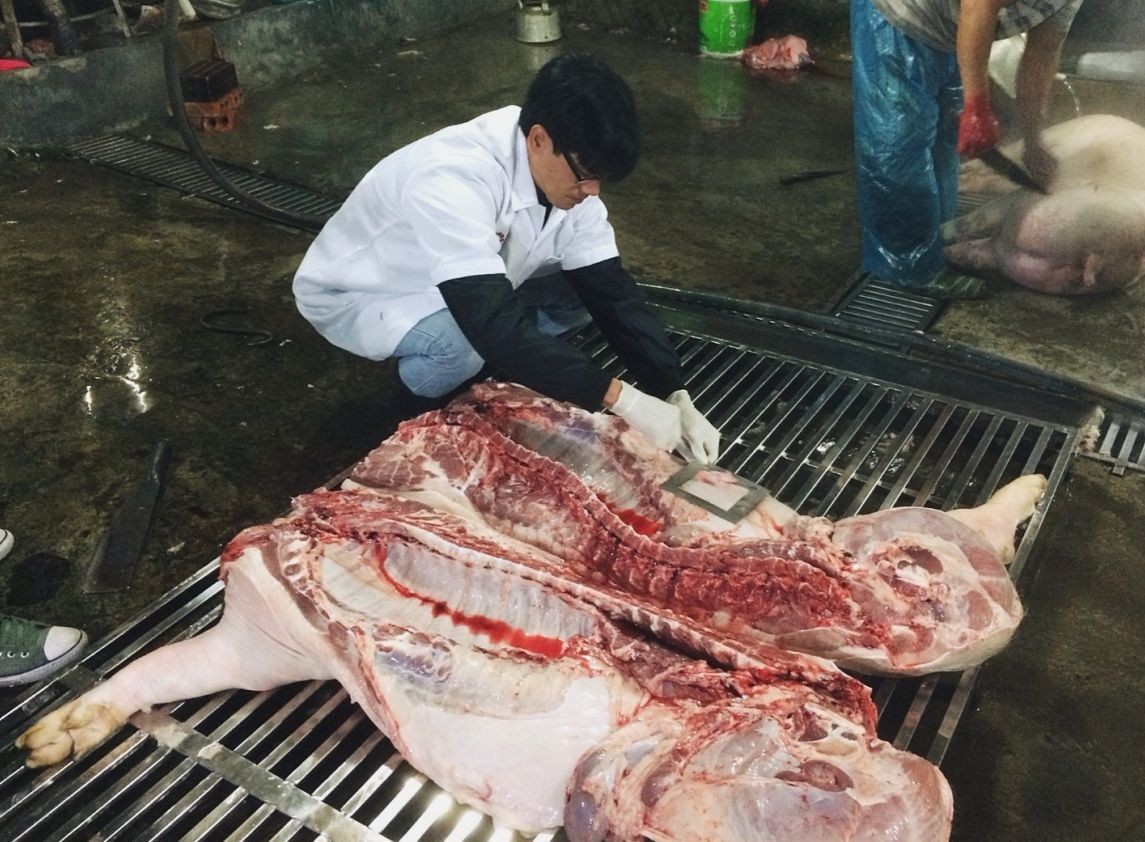 |
| ILRI staff collected pork samples at slaughterhouses in Nghe An and Hung Yen in 2016. (Photo: ILRI) |
Since the 2000s, ILRI has been among the few international organizations within the CGIAR system pioneering food safety risk assessment research - an international standard in food risk management. By 2008, ILRI had begun implementing FS research in Viet Nam, India, and Africa.
From research to risk reduction: The PigRISK project (2012-2017)
ILRI’s food safety research journey in Viet Nam began with the PigRISK project (Reducing disease risks and improving food safety in smallholder pig value chains in Viet Nam), implemented from 2012 to 2017 in collaboration with the Viet Nam National University of Agriculture (VNUA) and the Hanoi University of Public Health (HUPH).
PigRISK was one of the first projects to produce risk assessments related to biological and chemical hazards in small-scale pork value chains, showing that contamination occurred at almost every stage from farm to slaughterhouse to market.
To strengthen domestic capacity, ILRI supported the establishment of the Food Safety Risk Assessment Working Group in 2013. In 2017, ILRI served as the main technical agency drafting the report “Food Safety Risk Management in Viet Nam: Challenges and Opportunities.” This was the first FS risk assessment report in Viet Nam, chaired by the World Bank and coordinated by the Food Safety Working Group. The report helped Viet Nam shift from a reactive approach to proactive prevention in FS management.
Turning science into action: The SafePORK project (2017-2023)
While the PigRISK project helped identify problems, the SafePORK project (Market-based approaches to improving pork safety in Viet Nam) proposed several solutions. Funded by the Australian Centre for International Agricultural Research (ACIAR), the project tested simple, low-cost interventions to improve hygiene and FS practices in pork value chains.
In the provinces of Hung Yen, Nghe An, Hoa Binh, and Thai Nguyen, SafePORK piloted interventions at 10 pig slaughterhouses and 29 pork stalls, training more than 700 value chain actors and FS management officers. The project provided practical tools such as stainless steel floor panels to discourage slaughtering directly on the floor, and hygiene kits including cutting boards, disinfectants, soap, and trays for separately displaying raw meat, offal, and cooked meat.
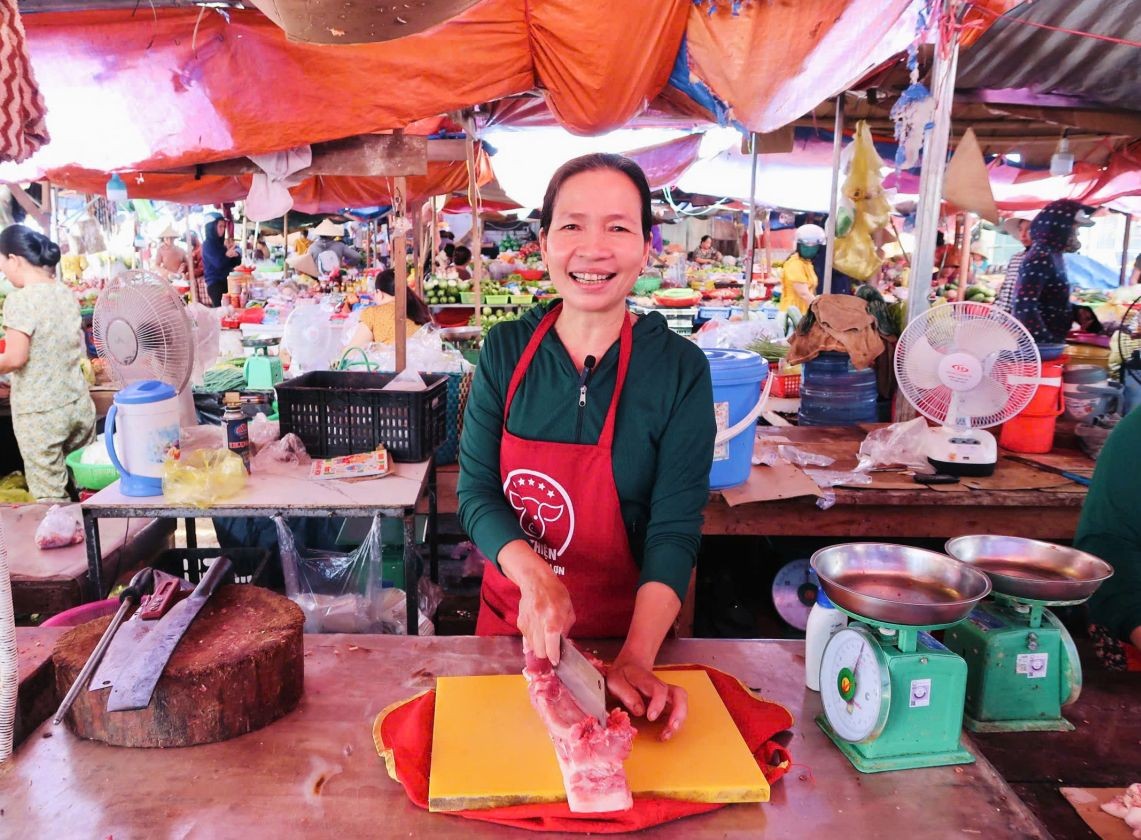 |
| Vendors received tools to help improve hygiene practices at meat stalls in markets. (Photo: ILRI) |
“Each toolkit costs less than one million dong, yet the improvements are quite substantial: Salmonella contamination dropped from 52% to 24%, and the project’s research also showed that consumers are willing to pay up to 20% more for safer pork,” shared Nguyen Viet Hung, ILRI Regional Director for Asia and senior research scientist of the project.
SafePORK also trained journalists on how to communicate FS risks accurately, helping raise public awareness without causing panic or misunderstanding.
Scaling up: The CGIAR One Health Initiative (2022-2024)
Building on the SafePORK results, ILRI continued implementing the CGIAR One Health Initiative from 2022 to 2024 by scaling up FS interventions in five provinces: Can Tho, Ha Noi, Thai Nguyen, Thua Thien Hue, and Dong Nai, with participation from both agricultural and public health sectors.
In collaboration with the National Institute of Veterinary Research (NIVR), the International Food Policy Research Institute (IFPRI), and local authorities, ILRI implemented controlled interventions at 16 pig slaughterhouses and 68 traditional markets, providing FS hygiene tools, instruction boards, disinfectants, and FS training for more than 210 slaughterhouse workers and nearly 500 vendors.
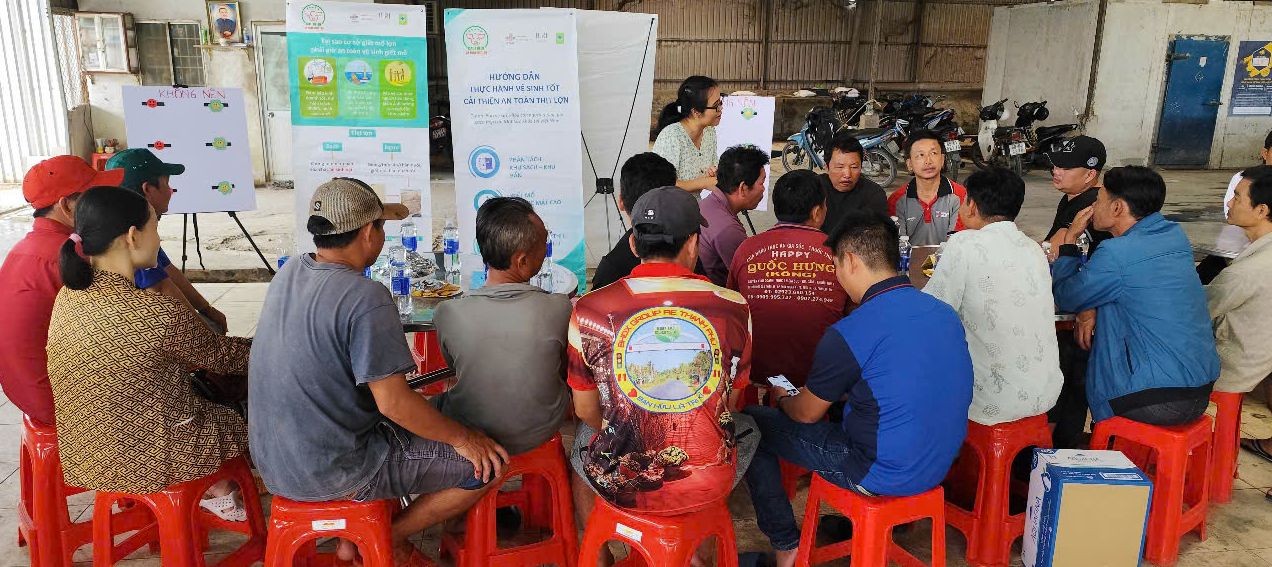 |
| ILRI and its partners organized training on good hygiene practices for slaughterhouse workers in Can Tho in 2024. (Photo: ILRI) |
Initial results in Ha Noi and Thai Nguyen show that Salmonella contamination in pork decreased by around 15% in the intervention group compared to the control group. Vendors cleaned tools more frequently, separated raw and cooked meat, and adopted safer practices.
Capacity building and policy impact
Over the past decade, ILRI has trained more than 10 master’s students and 4 PhD candidates, helping develop the next generation of FS experts. These professionals are now contributing to research, teaching, and policymaking in Viet Nam.
Through participation in and co-coordination of the Technical Working Group on Food Safety within the One Health Partnership Framework co-chaired by the Ministry of Agriculture and Rural Development, the Ministry of Natural Resources and Environment, and the Ministry of Health, ILRI provides scientific evidence for policymaking. ILRI’s recommendations for the National Action Plan on Food Systems Transformation to 2030 help Viet Nam move toward a risk-based FS management system, protecting public health while enhancing trade competitiveness.
Promoting more effective international cooperation
ILRI’s early success in Viet Nam has been made possible through regular interaction and strong support from VUFO and PACCOM, as well as government agencies, which create a favorable environment for foreign NGOs to collaborate and contribute to national development.
In 2021 and again in 2024, ILRI was honored to receive certificates of merit from VUFO for its contributions to Viet Nam’s sustainable development.
In the coming period, ILRI will continue its mission through the CGIAR Science Program on Sustainable Animal and Aquatic Food Systems (SAAF) 2025–2030 and several other bilateral projects, with Viet Nam remaining one of its priority countries.
ILRI would like to share several recommendations to further support the activities of international organizations in Viet Nam:
Simplifying administrative procedures: Streamline procedures for registration of foreign NGOs, project approval, and the organization of international meetings and workshops, in order to shorten appraisal and approval time and accelerate project implementation.
Developing a data-sharing platform: Establish a national database system on development projects in general and FS in particular, enabling ministries and localities to utilize information during policymaking.
Celebrating 75 years of establishment and development, VUFO is not only a bridge strengthening friendship between the people of Viet Nam and international friends, but also a sustainable foundation for science to spread and serve community life. ILRI is proud to accompany VUFO throughout this meaningful journey.
| The International Livestock Research Institute (ILRI) is a CGIAR research center headquartered in Nairobi (Kenya), with offices in several countries across Africa and Asia. ILRI began its presence in Viet Nam in the early 2000s and officially received an operating registration certificate from the Ministry of Foreign Affairs under the management of the People’s Aid Coordinating Committee (PACCOM) in 2013. ILRI has expanded its collaboration with ministries, departments, institutes, universities, and provincial partners, bringing global science and innovation to contribute to Viet Nam’s sustainable development goals. With the vision “Better lives, better planet through livestock,” ILRI is committed to improving livelihoods and promoting sustainable development in Viet Nam and worldwide. |
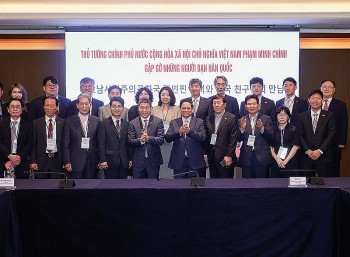 | Viet Nam Union of Friendship Organizations Actively Engages in and Organizes High-Level External Activities Abroad During 2024-2025, the Viet Nam Union of Friendship Organizations (VUFO) has taken the lead and cooperated with partners to organize numerous friendship exchanges and meetings ... |
 | Dr. Tra My: People-to-people Ties are Key to Fostering Viet Nam-China Relations The Viet Nam Union of Friendship Organizations (VUFO) serves as a reliable bridge, creating favorable conditions for the Viet Nam Business Association in China to ... |
Recommended
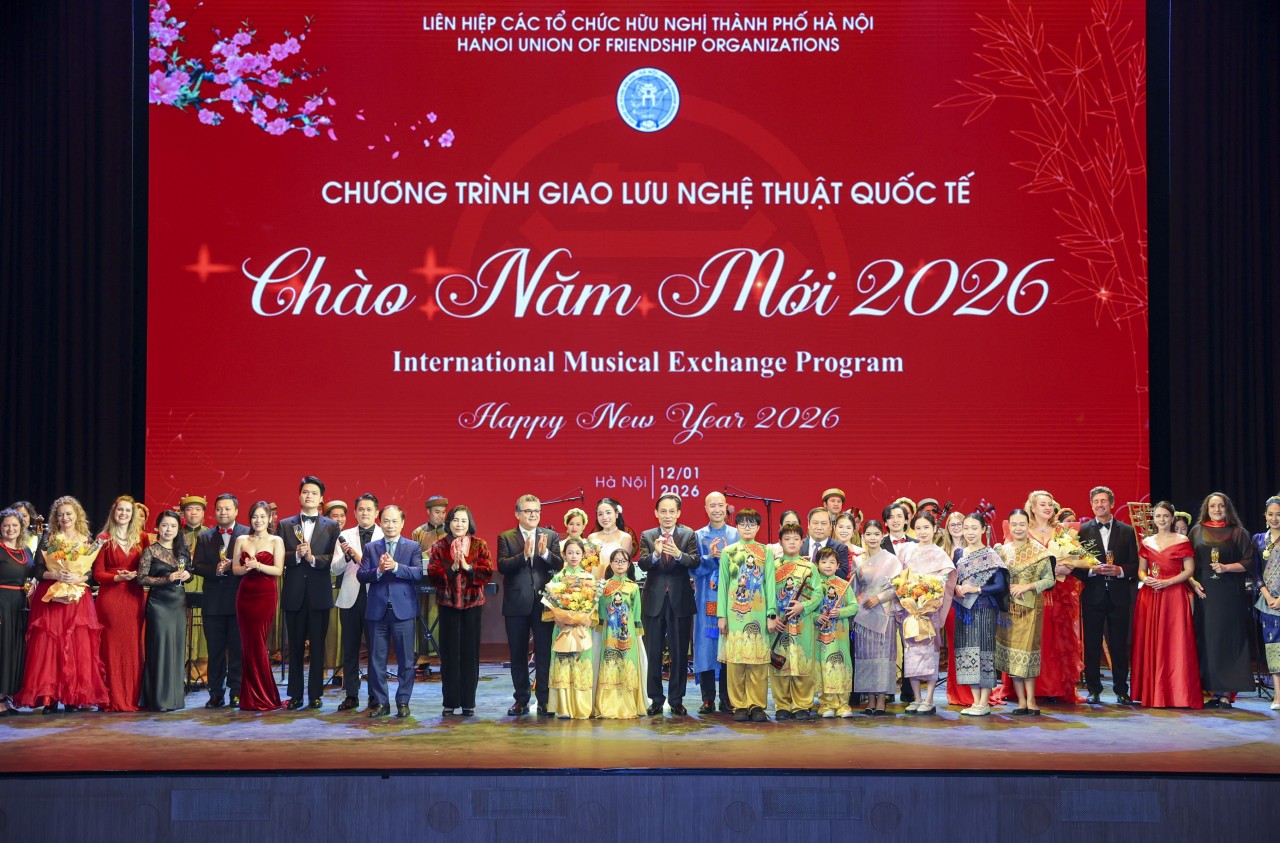 Friendship
Friendship
Hanoi Union of Friendship Organizations: Spreading Values of Peace in Heart of Capital
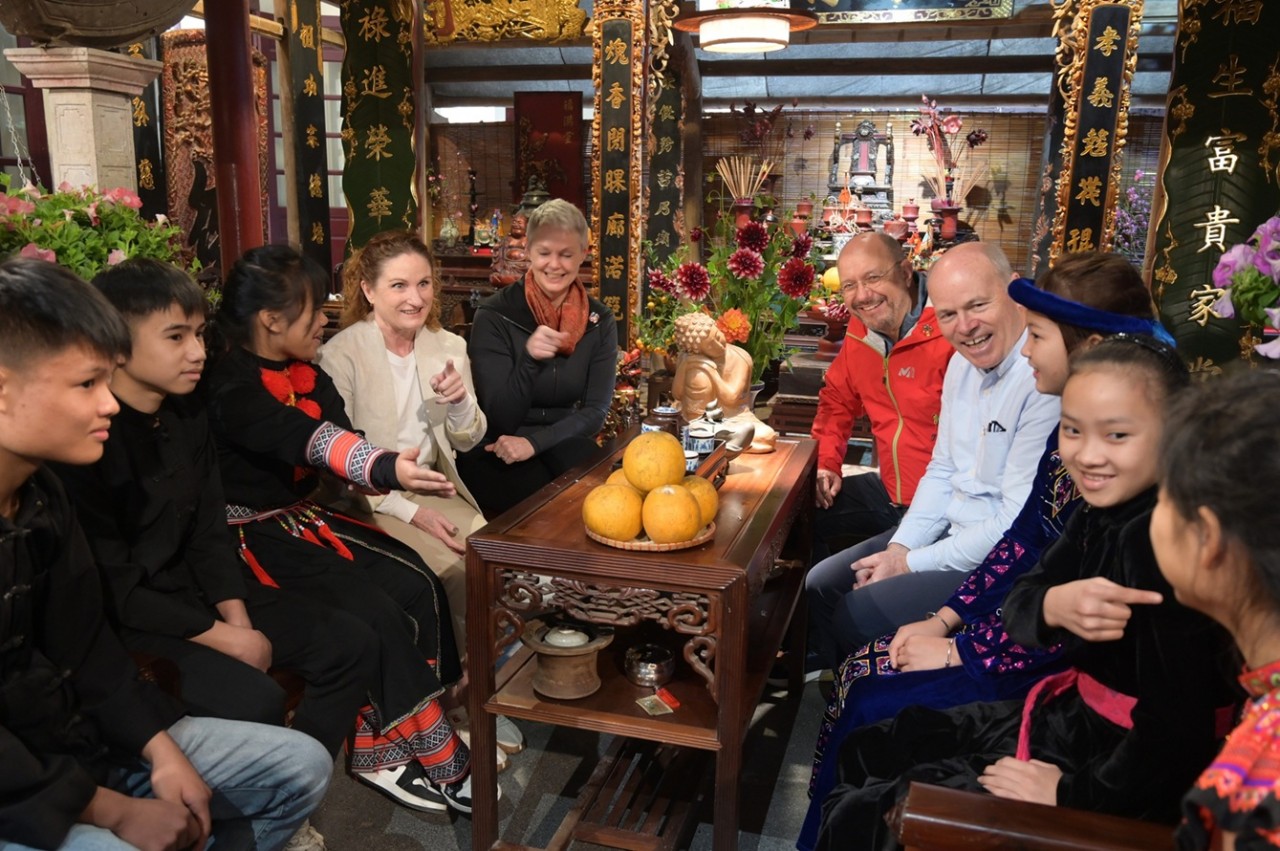 Friendship
Friendship
G4 Ambassadors to Vietnam Extend Greetings for the New Year of the Horse
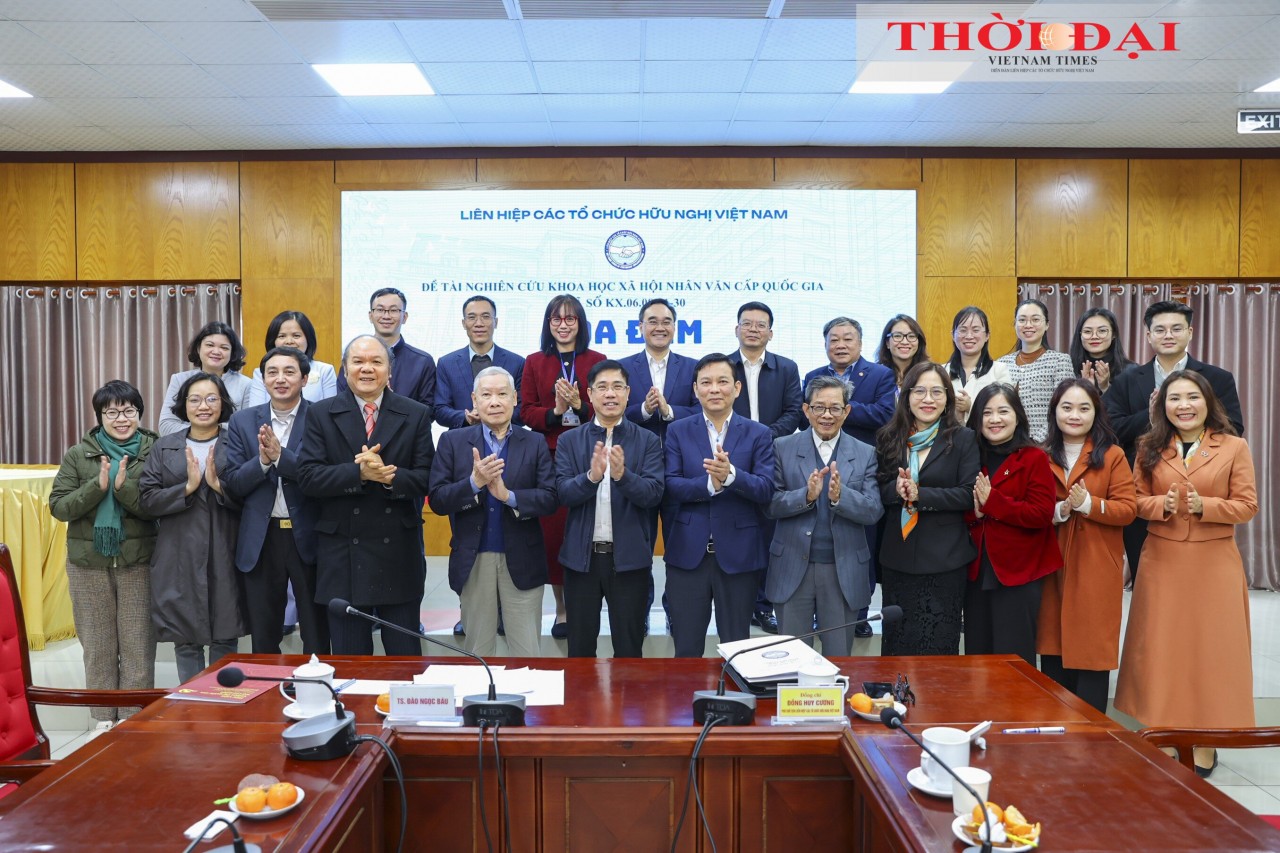 Focus
Focus
Seminar on “The Scientific Foundations of People-to-People Diplomacy in the World”
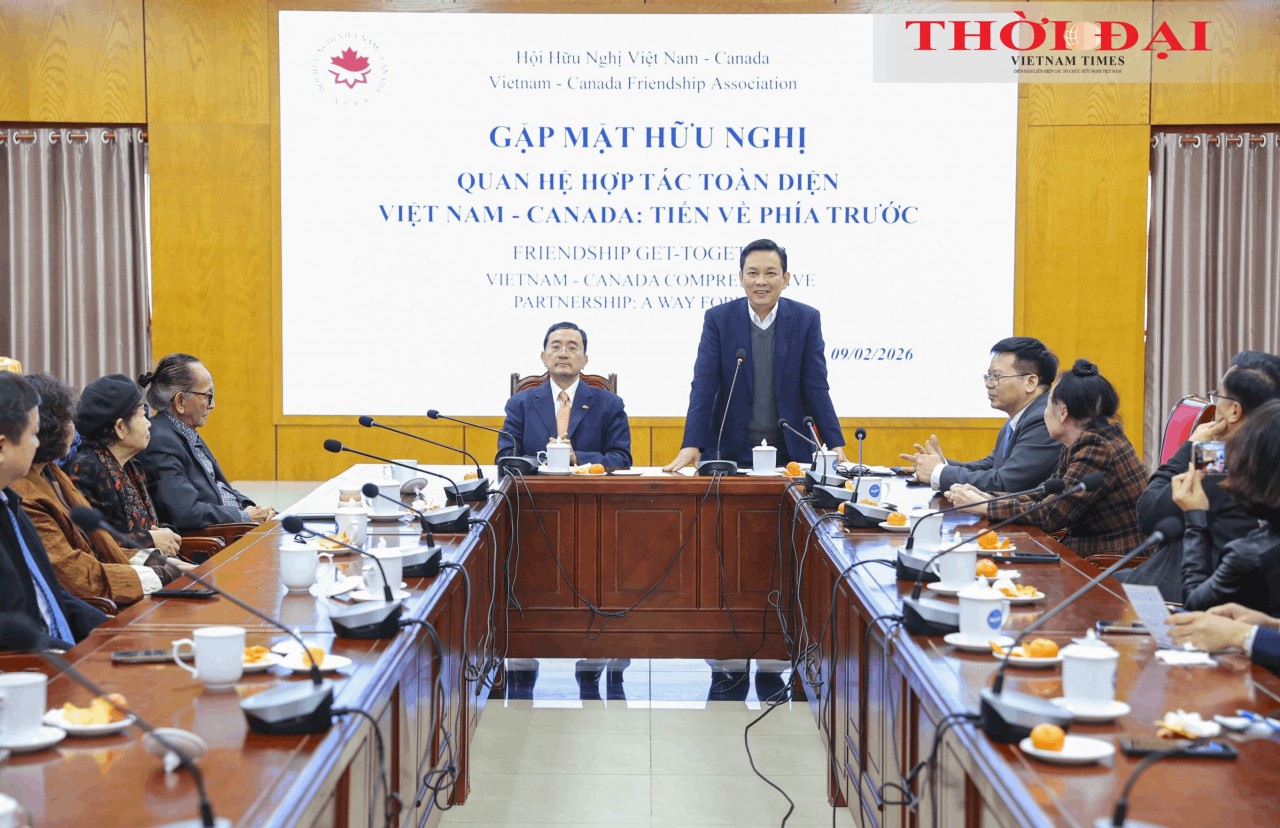 Friendship
Friendship
Vietnam-Canada Friendship Meeting: Advancing Comprehensive Cooperation through People-to-People Diplomacy
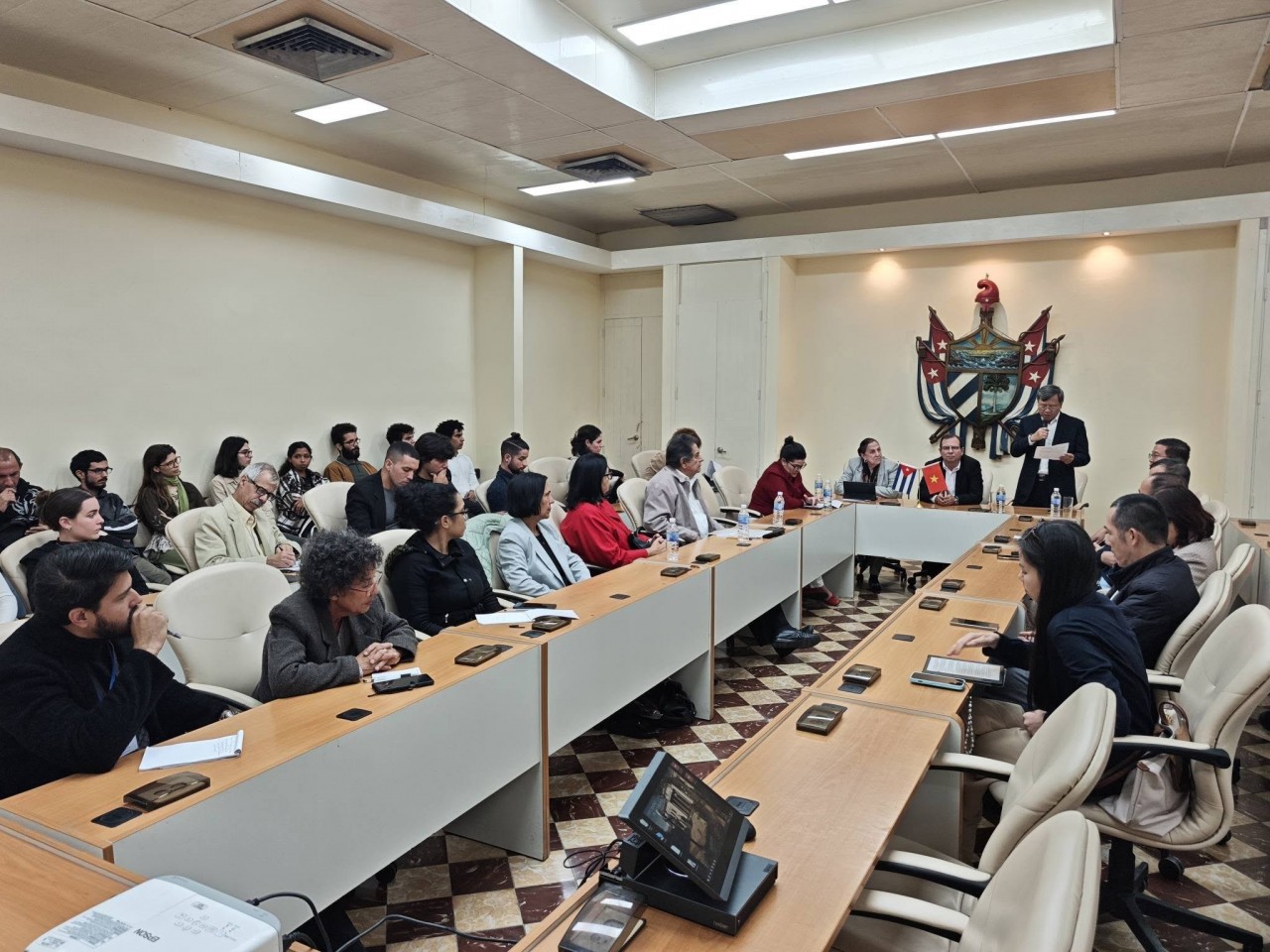 Friendship
Friendship
Seminar in Cuba Commemorates the 60th Anniversary of Fidel Castro’s Historic Statement on Vietnam
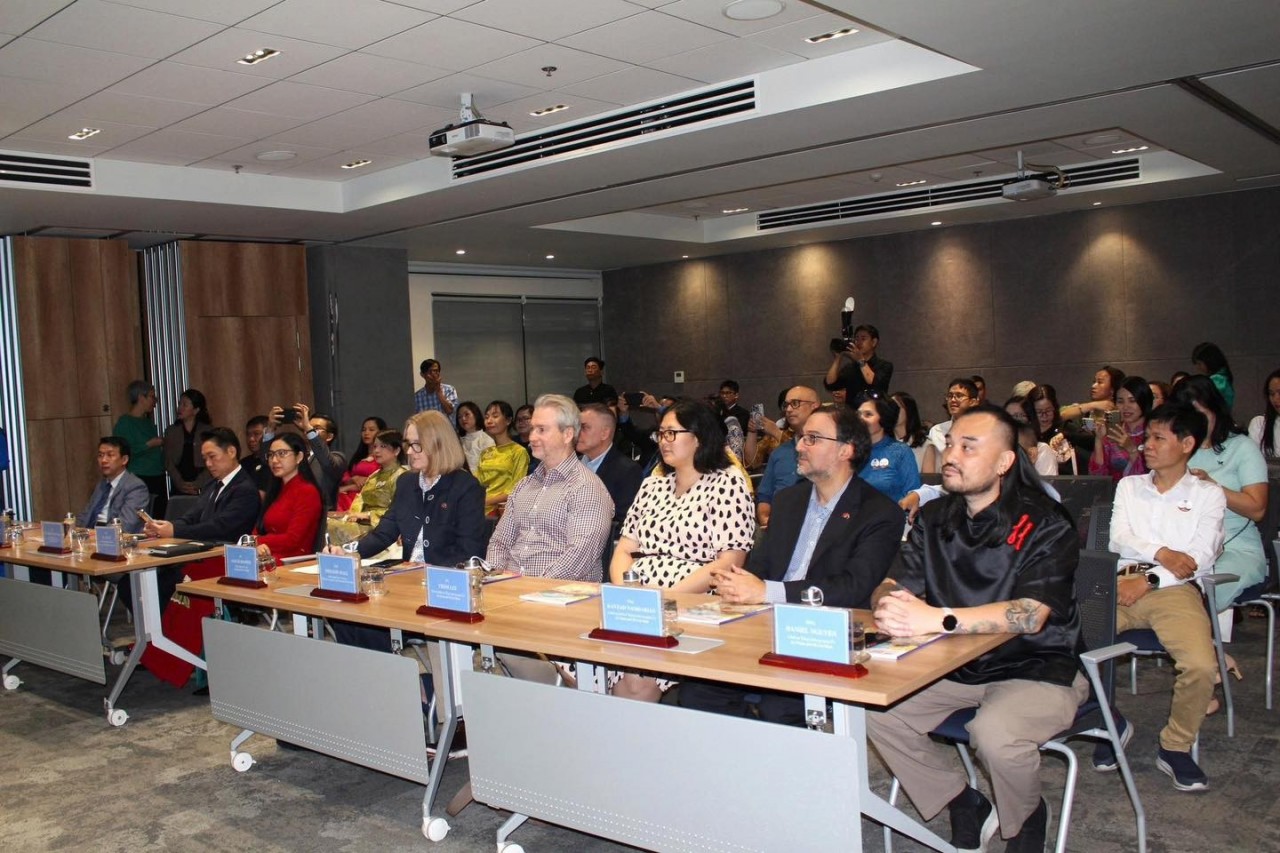 Friendship
Friendship
Ho Chi Minh City Promotes In-depth People-to-people Exchanges with Australia
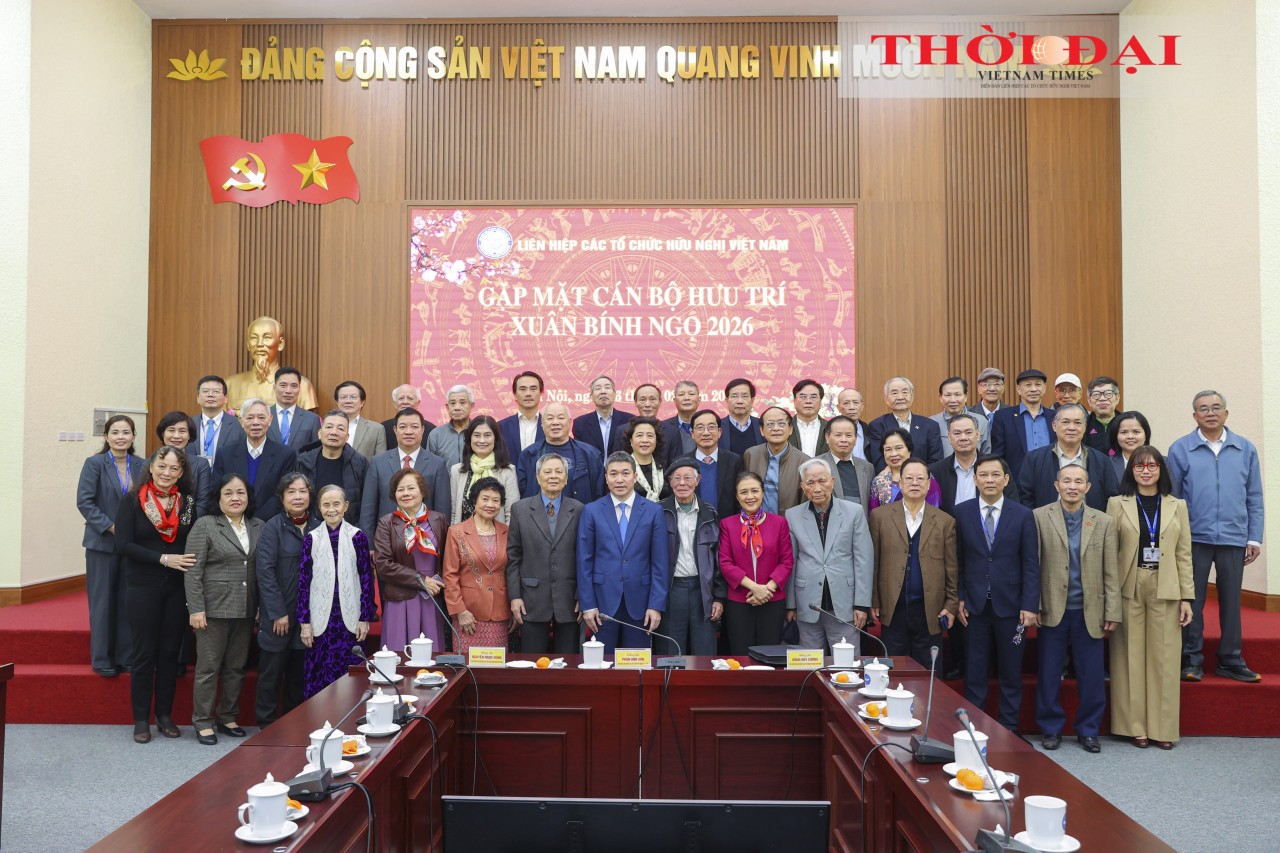 Friendship
Friendship
Viet Nam Union of Friendship Organizations: Strong Renewal in New Stage of Development
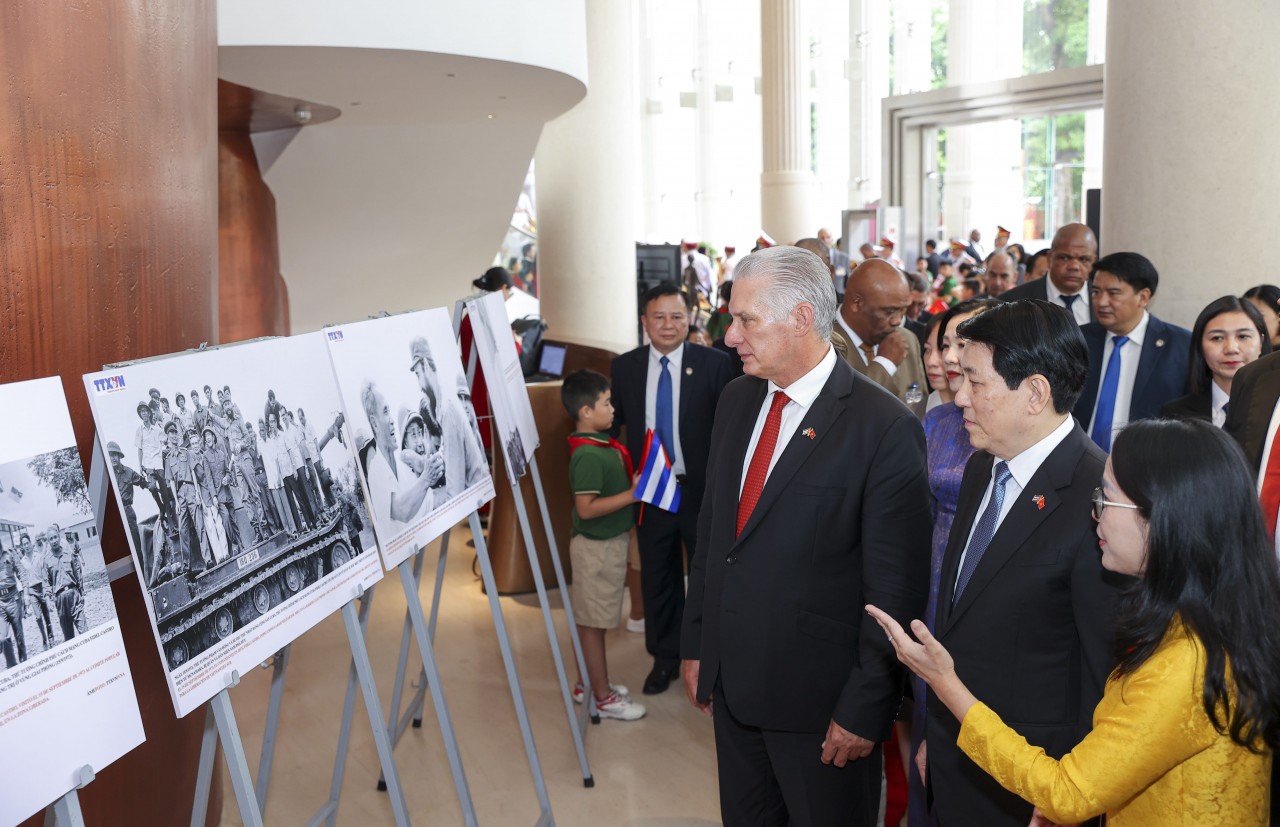 Friendship
Friendship

